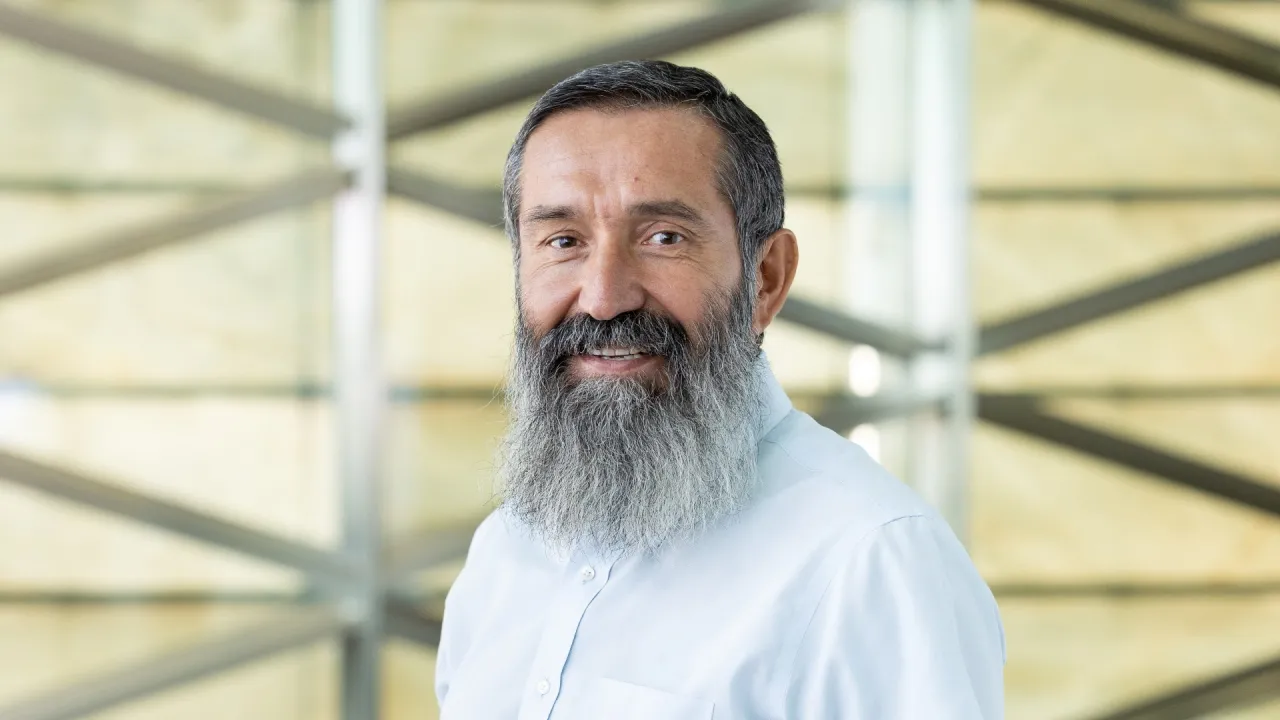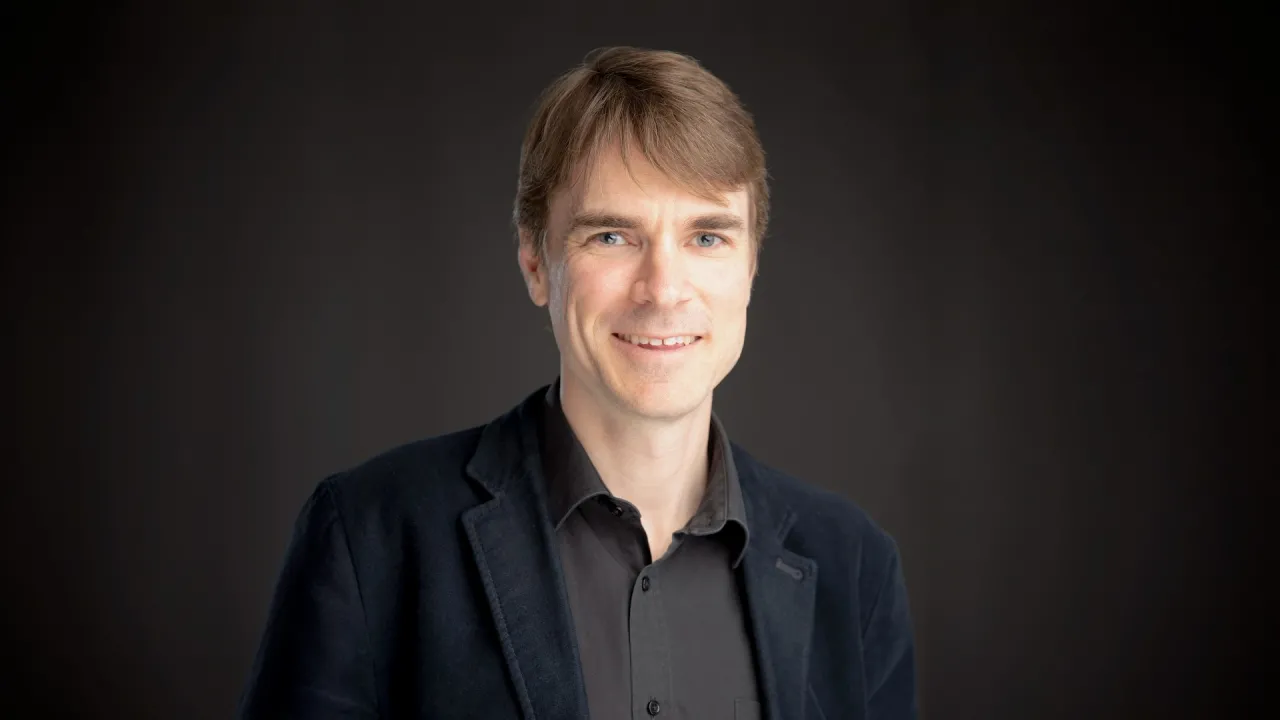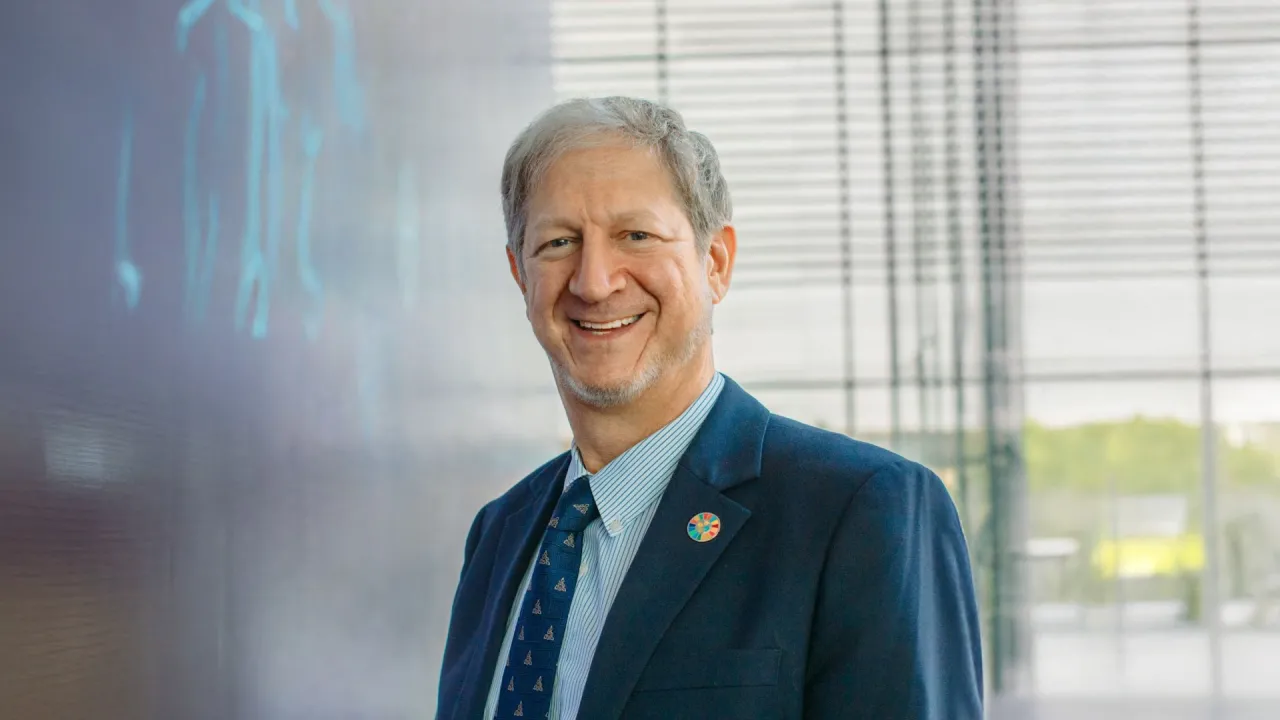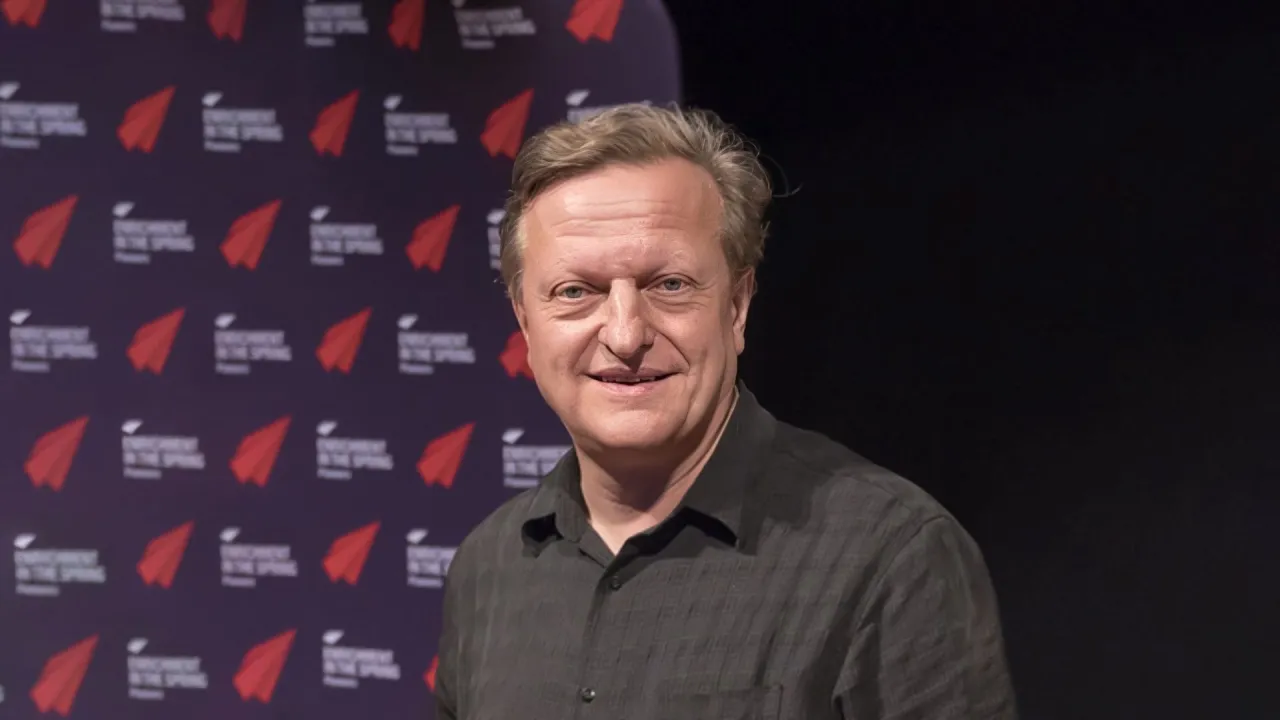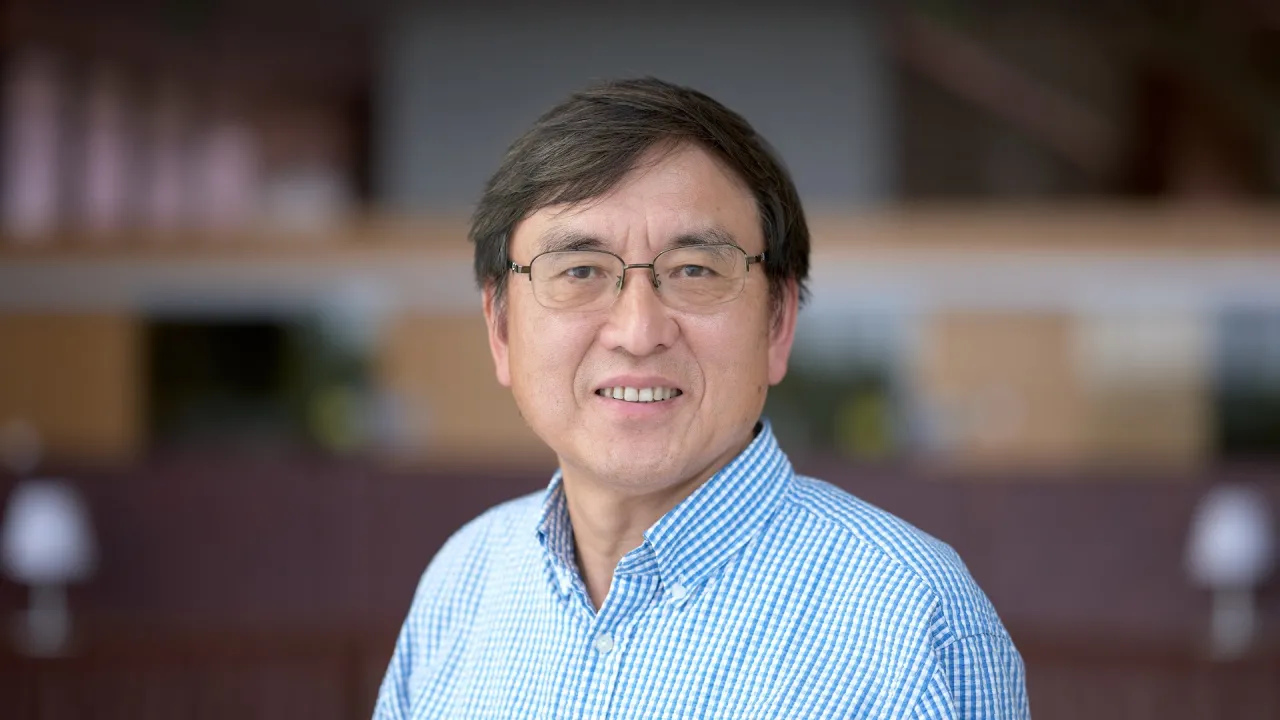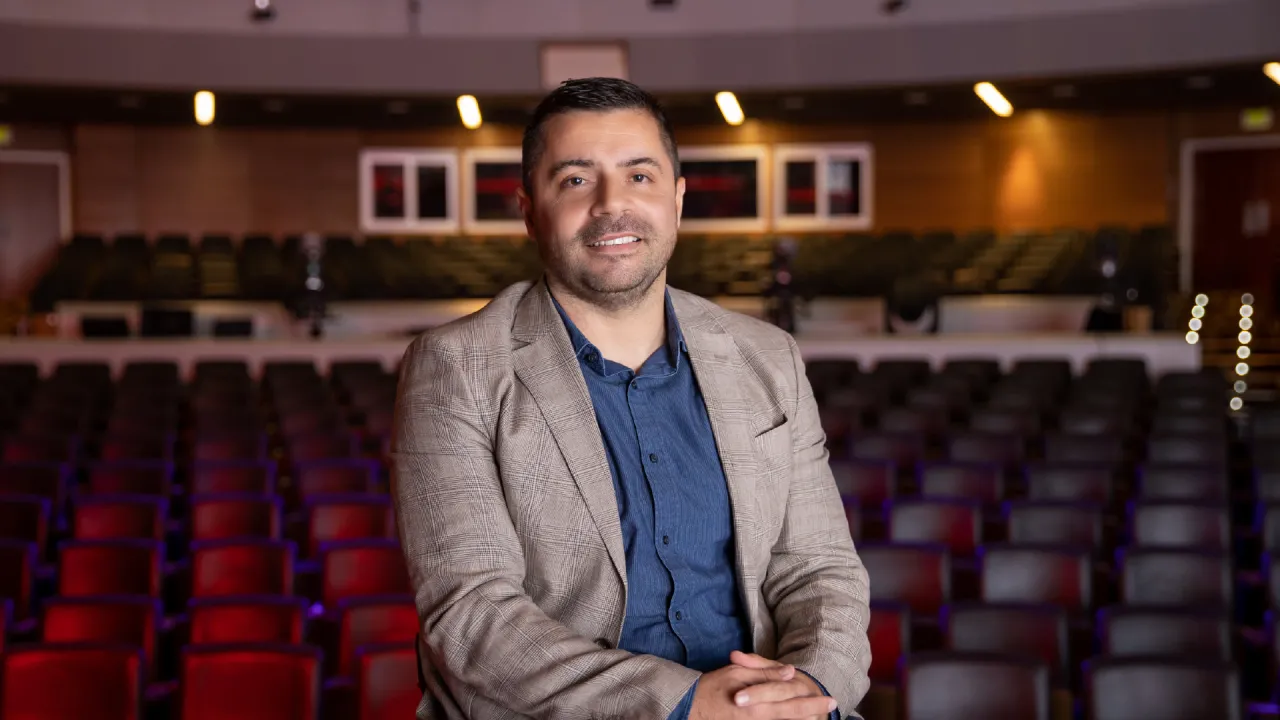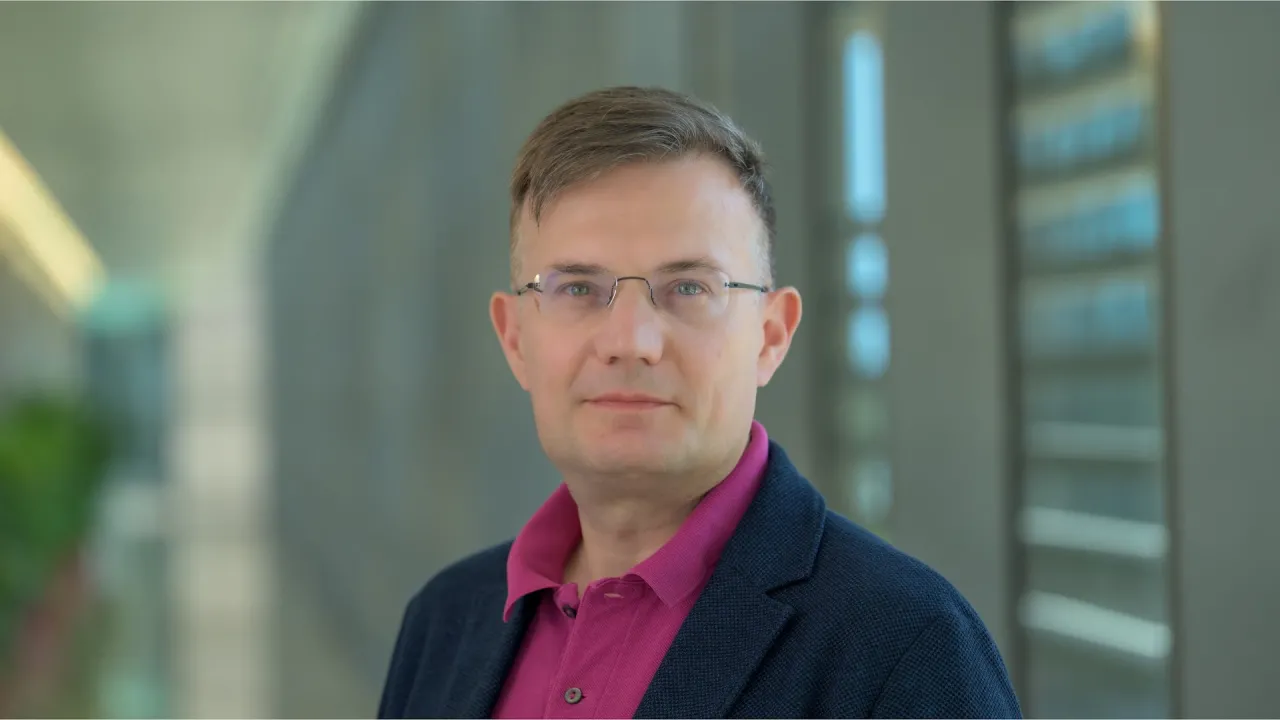
Numerical Analysis and High-Performance Computing
Researchers in numerical analysis and high-performance computing focus on scalable solvers for partial differential equations, data sparsity techniques, numerical methods for differential equations, algorithms for compressible flows, and parallel computing implementations.
Related People
Biography
Daniele Boffi is a professor in the Applied Mathematics and Computational Science Program at KAUST. Before joining KAUST, he spent 14 years as a full professor in the Department of Mathematics at the University of Pavia (UnIPV), Italy.
Boffi received his Ph.D. in Mathematics from UnIPV in 1996 and his M.S. in Mathematics from the same institution in 1990. During his time in Italy, he served as the director of Pavia's Higher Education School and was a member of several academic committees, including the University's Academic Senate and Evaluation Committee.
Boffi's research focuses on the numerical approximation of partial differential equations, spanning various aspects of mathematical modeling and scientific computing. He has made significant contributions to the modeling and simulation of fluid-structure interaction problems and the study of the numerical approximation of eigenvalue problems arising from partial differential equations.
At KAUST, Boffi leads the Numerical Methods for PDEs (NumPDE) research group, which provides a platform for the mathematical analysis and numerical validation of numerical schemes.
Research Interests
Professor Boffi's research is primarily devoted to the numerical approximation of partial differential equations, encompassing various aspects of mathematical modeling and scientific computing.
In particular, he has made significant contributions to the modeling and simulation of fluid-structure interaction problems and the study of the numerical approximation of eigenvalue problems arising from partial differential equations.
He leads the Numerical Methods for PDEs (NumPDE) research group at KAUST, which provides a rigorous platform for the mathematical analysis and numerical validation of numerical schemes.
Education
Biography
David Ketcheson is a Professor of Applied Mathematics and Computational Science and the principal investigator of the Numerical Mathematics Group. He received his Ph.D. and M.S. in Applied Mathematics from the University of Washington in 2009 and 2008, respectively. Ketcheson obtained B.S. degrees in Mathematics and Physics & Astronomy from Brigham Young University, U.S., in 2004.
Research Interests
Professor Ketcheson’s research involves the analysis and development of numerical methods for integrating ordinary and partial differential equations (PDEs), as well as the implementation of such methods in open source, accessible, high-performance software and its application to understanding the behaviour of nonlinear waves in heterogeneous materials.
Education
Biography
David Keyes is a professor in the Applied Mathematics and Computational Sciences, Computer Science, and Mechanical Engineering programs. He served as a founding dean of the Mathematical and Computer Sciences and Engineering Division from 2009 to 2012 and as the director of the strategic initiative and ultimately the Research Center in Extreme Computing from 2013 to 2024. He is also an adjunct professor and former Fu Foundation Chair Professor of Applied Physics and Applied Mathematics at Columbia University, and a faculty affiliate of several laboratories of the U.S. Department of Energy.
Professor Keyes is Fellow of the Society for Industrial and Applied Mathematics (SIAM), the American Mathematical Society (AMS), and of the American Association for the Advancement of Science (AAAS). He is the recipient of the SIAM Prize for Distinguished Service to the Profession (2011), the Distinguished Faculty Teaching Award of Columbia University (2008), the Sidney Fernbach Award of IEEE Computer Society (2007), and the ACM Gordon Bell Prize (1999), and the Prize for Teaching Excellence in the Natural Sciences of Yale University (1991) .
Keyes graduated summa cum laude in Aerospace and Mechanical Sciences with a certificate in Engineering Physics from Princeton in 1978 and earned a doctorate in Applied Mathematics from Harvard in 1984. He was a Research Associate in Computer Science at Yale University 1984-1985, and has had decadal research appointments at the Institute for Computer Applications in Science and Engineering (ICASE), NASA-Langley Research Center, and the Institute for Scientific Computing Research (ISCR), Lawrence Livermore National Laboratory.
Research Interests
Keyes' research lies at the algorithmic interface between parallel computing and the numerical analysis of partial differential equations (PDEs), with a focus on scalable implicit solvers and nonlinear and linear preconditioning for large-scale applications in energy and environmental science on emerging for power-austere emerging architectures.
Target applications demand high performance because of high resolution, high dimension, and high fidelity physical models and/or the “multi-solve” requirements of optimization, control, sensitivity analysis, inverse problems, data assimilation or uncertainty quantification. Newton-Krylov-Schwarz (NKS, 1994) and Additive Schwarz Preconditioned Inexact Newton (ASPIN, 2002) are methods he co-created and popularized. He also focuses on the discovery of data sparsity and the exploitation of hierarchy in large-scale systems involving dense covariance and kernel matrices in statistics, genomics, data science, and machine learning.
Charters for his research are the International Exascale Software Project (IESP, 2011) and the Science-based Case for Large Scale Simulation (SCaLeS, 2001/2003) reports.
Education
Biography
Dr. Wittum obtained his Ph.D. (Dr. rer. nat.) in 1987 from Kiel University, Germany. He then pursued further academic qualifications at the University of Heidelberg, Germany, where he received his Habilitation in 1991 and began his first professorship in numerical analysis.
His academic career continued to advance as he served as Director of the Institute for Computer Applications at the University of Stuttgart, Germany, from 1994 to 1998. Following this, he became the Director of the Simulation in Technology Center at the University of Heidelberg, Germany, a position he held from 1998 to 2008. In 2008, he transitioned to the University of Frankfurt, where he led the Gauss Center of Scientific Computing (G-CSC).
After 25 years of serving as a professor at several leading universities in Germany, he joined KAUST, where he is currently a professor in the Applied Mathematics and Computational Science program.
Wittum’s work developing robust and scalable multi-grid methods and software systems for large-scale computing has led to numerous collaborative projects with industry partners, including ABB, Boston Consulting, Commerzbank, Daimler-Benz, the GICON Group, GRS, Porsche and more.
His contributions to science have been recognized with several prestigious awards, including the Heinz-Maier-Leibnitz Prize, the Controlled Release Society's Award and the doIT Software Award. Professor Wittum has also authored over 200 scientific publications.
Research Interests
Professor Wittum’s research focuses on a general approach to modelling and simulation of problems from empirical sciences, in particular using high-performance computing (HPC).
Particular areas of focus include the development of advanced numerical methods for modelling and simulation, such as fast solvers like parallel adaptive multi-grid methods, allowing for application to complex, realistic models; the development of corresponding simulation frameworks and tools; and the efficient use of top-level supercomputers.
Wittum applies his methods and tools toward problem-solving in computational fluid dynamics, environmental research, energy research, finance, neuroscience, pharmaceutical technology and beyond.
Education
Biography
George Turkiyyah is a research professor in the Applied Mathematics and Computational Science program at KAUST.
Before joining KAUST, he was a professor at the American University of Beirut, where he also served as chair of the computer science department. Prior to joining AUB, he was an assistant professor and later an associate professor at the University of Washington in Seattle.
Turkiyyah earned a Bachelor of Engineering (B.Eng.) in civil and environmental engineering from the American University of Beirut, and both a Master of Science (M.S.) and a Doctor of Philosophy (Ph.D.) in computer-aided engineering from Carnegie Mellon University.
Turkiyyah has been involved in the development of knowledge-based AI systems that have been deployed in practice. He has also developed several widely used simulation codes for high-resolution finite element engineering applications. His work on fast methods for surgical simulation has led to a software startup and several patents.
His research has earned several awards, including the Transportation Research Board K.B. Woods Award in 2003 for best paper in design and construction, the Best Presentation Award at the ACM Solid and Physical Modeling Conference in 2007, and the Best Poster Award at the Medicine Meets Virtual Reality Conference in 2006.
He chaired the 2003 ASCE Engineering Mechanics Conference and co-chaired the Eighth ACM Symposium on Solid Modeling and Applications (SPM) in 2003. He is a member of ACM and the Society for Industrial and Applied Mathematics (SIAM).
Research Interests
Professor Turkiyyah’s current research interests include hierarchically low-rank matrix algorithms and their HPC/GPU implementations to support the development of simulation models at extreme scales.
His work addresses various applications of hierarchical matrix technology, including PDE-constrained optimization, high-dimensional statistics problems, multi-dimensional fractional diffusion problems, scientific data compression and second-order methods for training neural networks.
Education
Biography
Professor Xu is a leading figure in the development, design and analysis of fast methods for finite element discretization and large-scale equation solutions. He has made many groundbreaking contributions in these areas, including several fundamental theories and algorithms that bear his name. These include the Bramble-Pasciak-Xu (BPX) preconditioner, the Hiptmair-Xu (HX) preconditioner and the Xu-Zikatanov (XZ) identity.
Xu received his Bachelor's degree from Xiangtan University, China, in 1982, his Master's degree from Peking University, China, in 1984 and his doctoral degree from Cornell University, U.S., in 1989. He joined Pennsylvania State University (Penn State), U.S., in 1989 as Assistant Professor of Mathematics, was promoted to associate professor in 1991, and to professor in 1995.
He was named a Distinguished Professor of Mathematics in 2007, the Francis R. and Helen M. Pentz Professor of Science in 2010 and the Verne M. Willaman Professor of Mathematics in 2015 at Penn State. He was also awarded the first Feng Kang Prize for Scientific Computing in 1995 and the Humboldt Award for senior U.S. scientists in 2005. His work was featured as one of the "Top 10 breakthroughs in computational science" in a 2008 US Department of Energy report.
According to Google Scholar, Xu has published more than 240 scientific papers with more than 18,500 citations. He was a plenary speaker at the International Congress for Industrial and Applied Mathematics in 2007 and an invited speaker at the International Congress for Mathematicians in 2010.
Xu serves on the editorial boards of many influential journals in computational mathematics and co-edits numerous research monographs and conference proceedings. He has organized or served as a scientific committee member for more than 100 international conferences, workshops and summer schools.
He is a Fellow of the Society for Industrial and Applied Mathematics (SIAM), the American Mathematical Society (AMS), the American Association for the Advancement of Science (AAAS) and the European Academy of Sciences (EurASc). In 2023, he was elected to the prestigious Academia Europaea.
Research Interests
Dr. Xu’s research focuses on numerical methods for partial differential equations and big data, specifically finite element methods, multigrid methods and deep neural networks for their theoretical analysis, algorithmic development and practical applications.
Recently, he has devoted himself to mathematical studies of deep learning, working on topics such as the approximation theory of deep neural networks. He has also been developing convolutional neural networks and training algorithms from the multigrid viewpoint and subspace corrections method.
Biography
Professor Matteo Parsani is an associate professor of Applied Mathematics and Computational Sciences at KAUST. He is also affiliated with the Mechanical Engineering Program and leads the Advanced Algorithms and Simulations Lab (AANSLab).
Hi research leverages self-adaptive algorithms, high-performance computing, and the judicious use of machine learning to enhance simulation accuracy, efficiency and reliability in real-world applications. Drawing on experience from NASA Langley Research Center and other leading research institutions, he specializes in computational fluid dynamics, modeling, and efficient high-fidelity numerical simulations.
Professor Parsani's research advances a broad spectrum of technologies, including next-generation aerospace technologies and urban air mobility for cognitive cities, noise reduction for sustainable air travel, hypersonic flight, and aerodynamics of F1 and electric vehicles. His research extends to computational modeling in biomedical science, applying simulations to study biological systems in cancer treatments and the flow dynamics of reef environments for intervention-based coral reef growth recovery.
Parsani's high-performance computational solvers and libraries are utilized to tackle complex engineering challenges in collaboration with industry partners such as Boeing, NASA’s Langley Research Center (LaRC), the McLaren F1 racing team, Airbus, E1 Series and Lucid Motors.
He earned his Master’s in Aerospace Engineering from Politecnico di Milano, Italy (2006), and his Ph.D. in Mechanical Engineering from Vrije Universiteit, Belgium (2010). He joined KAUST as a postdoctoral fellow in 2010 before pursuing a fellowship at NASA Langley Research Center. In 2014, he joined KAUST as a professor.
Beyond academia, Professor Matteo is a former soccer player and activist for people with disabilities. In December 2023, he embarked on an unprecedented coast-to-coast hand-bike journey across the Kingdom of Saudi Arabia to promote physical activities, sports, and awareness about people with disabilities. He covered nearly 150 kilometers daily on a hand-bike, totaling over 3,100 kilometers in about 22 days. This challenge was once deemed impossible for someone who has been living with an incomplete spinal injury since 2017.
Research Interests
Professor Matteo Parsani’s research interests are related to designing and implementing novel, robust and scalable numerical methods. Specifically, unstructured grids for hyperbolic and mixed hyperbolic/parabolic partial differential equations.
A core focus of Parsani’s research is on efficient and robust algorithms for the aerodynamic and aeroacoustic design of aerospace vehicles. Additionally, he studies non-classical gas-dynamic phenomena for energy conversion systems and the investigation of biological flow in cancer treatments.
His current research examines the stability and efficiency of spatial and temporal discretizations and structure-preserving methods that can mimic results from the continuous to the discrete level. A number of application domains are currently driving his research, including computational aerodynamics, dense gas flow simulations, and computational aeroacoustics.
Education
Biography
Professor Tempone received his Ph.D. in numerical analysis in 2002 from the Royal Institute of Technology, Sweden. The next phase of his career took him to the United States, where he completed his postdoc at the University of Texas Institute for Computational and Engineering Sciences (ICES), before joining Florida State University as an assistant professor of mathematics.
Tempone joined KAUST in 2009 as a founding faculty member, as an associate professor of applied mathematics, and became a full professor in 2015. He is also principal investigator of the Stochastics Numerics Research Group.
A variety of fields, such as computational mechanics, quantitative finance, biological and chemical modeling, and wireless communications, are driving his research. More specifically, his research contributions include a posteriori error approximation and related adaptive algorithms for numerical solutions to deterministic and stochastic differential equations. His honors include the German Alexander von Humboldt Professorship (2018–2025), the first Dahlquist Fellowship in Sweden (2007–2008), and being elected program director of the SIAM Uncertainty Quantification Activity Group (2013–2014).
Research Interests
Tempone's expertise and research interests lie at the intersection of applied mathematics, computational science, and stochastic analysis, with a strong focus on developing and analyzing numerical methods for stochastic and deterministic problems. His work emphasizes adaptive algorithms and hierarchical and sparse approximation, Bayesian inverse problems and data assimilation, optimal experimental design, scientific machine learning, stochastic optimization, optimal control, and uncertainty quantification, aiming to push the boundaries of computational efficiency and accuracy in simulations.
At the helm of the Stochastic Numerics Research Group at KAUST, Tempone is particularly interested in the development and analysis of numerical methods to advance applications spanning computational mechanics, quantitative finance, renewable energy sources management, biological and chemical modeling, and wireless communications.
His approach is theoretical and highly applicable, addressing real-world problems across various domains while grounded in solid foundations of mathematical and computational techniques. His work is instrumental for those interested in the practical application of mathematics to solve complex, real-world issues, making his research group an ideal place for potential collaborators, postgraduate students, postdocs, and research scientists looking for cutting-edge projects at the nexus of uncertainty quantification and computational science.
Education
Rolf Krause
applied mathematics Numerical Solution of Partial Differential Equations Finite elements machine learning Numerical Optimization medicine computational mechanics contact problems fluid-structure interactions cardiac simulation biomechanics geology Multiphysics Simulation HPC optimization Multigrid Domain Decomposition software development
Biography
Rolf Krause is a full professor in the Applied Mathematics and Computational Sciences Program at KAUST, with a career spanning academia, research and leadership. Before joining KAUST, he was a full professor at Università della Svizzera italiana in Lugano, Switzerland, where he directed the Institute of Computational Science from 2009 to 2020 and has served as co-director of the Center for Computational Medicine in Cardiology since 2014.
Beyond his research roles, Professor Krause has held notable leadership positions including a director of the interdisciplinary Euler Institute in 2021 and was the founding dean of the Faculty of Mathematics and Informatics at UniDistance Switzerland in 2022.
His commitment to academic service includes roles such as chairman of the examination board for mathematics studies and chairman of the board of finance for tuition fees at the University of Bonn from 2007 to 2009, as well as membership in the academic senate at USI from 2017 to 2021.
His work has earned numerous awards, including the Taylor & Francis Prize for Innovative Contribution to Theoretical Biomechanics/Biomedical Engineering and the MATH+ Distinguished Visiting Scholar recognition from the MATH+ Center in Berlin.
Professor Krause holds a Doctor rerum naturalium in Mathematics with distinction ("summa cum laude") from The Free University of Berlin, awarded in 2001. He also earned a Diploma in Mathematics with a minor in Economics from the same institution in 1996.
Research Interests
Professor Krause's research focuses on numerical simulation, machine learning, optimization, and data-driven approaches. A major focus of his research is the design and analysis of efficient and reliable algorithms that can be used to solve complex problems in scientific computing and machine learning.
Krause and his colleagues use mathematical understanding and computer science expertise to advance sustainable progress in many areas, from medicine to geology. They provide scientific software capable of solving complex, large-scale problems that can run on modern supercomputers such as KAUST’s Shaheen III.
Areas of expertise and focus
- Contact problems in mechanics
- Scientific software
- Multilevel and domain decomposition methods
- Optimization
- Iterative solution of large-scale systems
- Parallel computing
- High-performance computing (HPC)
- Coupled problems
- Finite elements
- Non-linear solution methods
- Neural networks
- Physics-informed neural networks
- Cardiac simulation
- Biomechanics
- Computational geoscience
Application areas
- Medicine
- Computational mechanics
- Contact problems
- Fluid-structure interaction
- Cardiac simulation
- Biomechanics
- Geology
- Complex and coupled multiphysics
